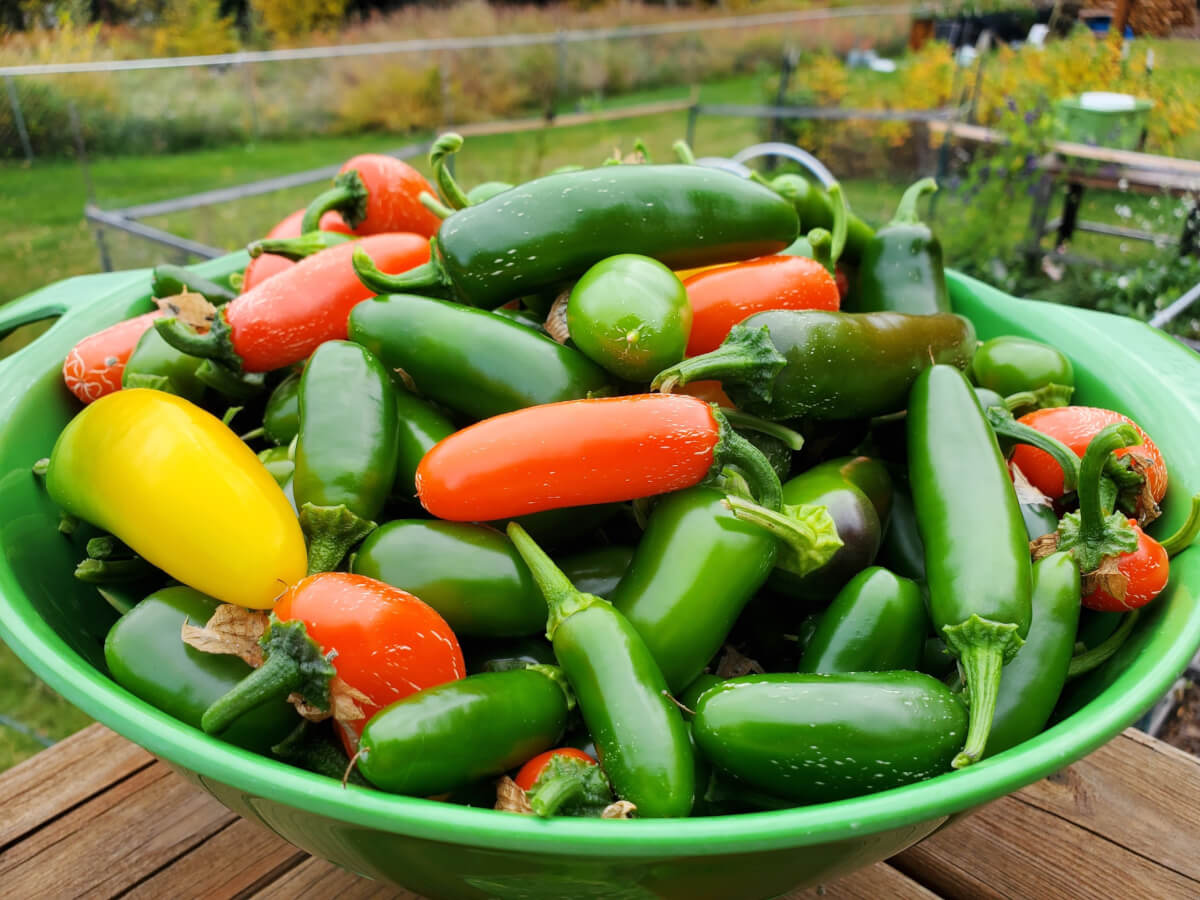Discover the Best Fertilizers for Peppers and Enhance Your Garden's Yield
Discover the Best Fertilizers for Peppers and Enhance Your Garden's Yield
Blog Article
Organic Vs. Synthetic Fertilizers: Which Is Best for Nurturing Healthy And Balanced Pepper Plants?
In the world of nurturing healthy and balanced pepper plants, the choice in between synthetic and natural fertilizers stands as a critical choice with significant effects. While both alternatives goal to provide essential nutrients to support plant growth, the nuances of their effect on the dirt, plant wellness, and the environment trigger an argument that echoes throughout the horticulture community. Comprehending the unique advantages and possible pitfalls of each plant food type is crucial for pepper cultivators seeking to enhance their yields while keeping an eco-conscious and lasting strategy.
Advantages of Organic Plant Foods
Organic fertilizers supply an environmentally-friendly and sustainable method to nourishing pepper plants, supplying crucial nutrients without making use of synthetic chemicals. These natural fertilizers are stemmed from organic resources such as compost, manure, bone dish, and algae, promoting soil health and biodiversity. Unlike synthetic plant foods, natural alternatives release nutrients slowly, making certain a balanced and steady supply for pepper plants to prosper.
One significant benefit of natural plant foods is their ability to boost soil framework and water retention. By improving dirt health, natural fertilizers advertise useful microbial activity, which helps in nutrient uptake by pepper plants. Additionally, organic fertilizers minimize the risk of chemical run-off, shielding water sources from contamination and securing the setting.
Moreover, natural fertilizers add to lasting dirt fertility by advertising the growth of beneficial soil microorganisms. These microorganisms assist break down organic matter, launching nutrients in a kind that is easily available to pepper plants. best fertilizers for peppers. By cultivating a healthy soil ecosystem, natural fertilizers support lasting pepper cultivation methods that profit both plants and the setting
Drawbacks of Synthetic Fertilizers
Synthetic fertilizers, in contrast to their organic equivalents, position various disadvantages when made use of to nurture pepper plants, affecting both plant wellness and environmental sustainability. One significant drawback of synthetic fertilizers is their tendency to leach nutrients from the dirt rapidly.
Additionally, the overuse of synthetic plant foods can contribute to water air pollution. Excess fertilizers not taken in by plants can get rid of right into water bodies, resulting in eutrophication, where algae flowers deplete oxygen levels in the water, damaging aquatic life. Artificial plant foods are usually derived from non-renewable sources, such as fossil gas, contributing to carbon discharges and environmental destruction throughout their production.
Nutrient Absorption Comparison
When comparing natural and artificial fertilizers in terms of nutrient absorption, natural fertilizers have the advantage of supplying a more balanced and slow-release source of nutrients. Organic plant foods consist of a range of macro and trace elements that are not just valuable for the plants yet additionally promote healthy and balanced soil microbial activity, which aids in nutrient uptake.
Additionally, organic plant foods improve soil framework and water retention ability, enabling pepper plants to access nutrients much more effectively. This enhanced soil top quality promotes origin growth, enabling much better nutrient absorption. Synthetic fertilizers, although originally enhancing plant development due to their high nutrient concentrations, might hinder long-lasting nutrient absorption by degrading dirt health in time.
Environmental Influence Factors To Consider

On the other hand, synthetic fertilizers, although often even more promptly offered and concentrated to plants, can have harmful effects on the setting otherwise applied properly (best fertilizers for peppers). Their manufacturing calls for high energy inputs, resulting in greenhouse gas emissions and adding to climate change. The overflow of excess synthetic plant foods can infect water sources, leading to eutrophication and harming marine ecological communities.
Ideal Fertilizer Practices for Peppers
To achieve Full Report this, it this article is important to follow best fertilizer practices customized to the details demands of pepper plants. One critical technique is to execute a dirt test before applying any kind of plant foods.
An additional vital technique is to fertilize pepper plants at the best time. Generally, peppers gain from receiving plant food at planting and then again when they begin to blossom. Over-fertilizing can result in nutrient imbalances and damage the plants, so it is crucial to comply with suggested application prices.
In addition, selecting a balanced plant food with an NPK ratio that matches pepper plants' demands is fundamental. Organic plant foods, such as compost or manure, can be excellent selections as they release nutrients gradually and enhance dirt framework over time. Synthetic plant foods can give a quick nutrient increase when needed. Ultimately, incorporating natural and synthetic fertilizers judiciously can assist support healthy and balanced pepper plants while reducing ecological effect.
Final Thought

Organic plant foods use an environmentally-friendly and sustainable method to nourishing pepper plants, providing essential nutrients without the usage of artificial chemicals. Unlike synthetic fertilizers, natural alternatives release nutrients slowly, ensuring a balanced and stable supply for pepper plants to thrive.
Artificial fertilizers, in contrast to their natural equivalents, position various negative aspects when utilized to nourish pepper plants, impacting both plant wellness and ecological sustainability. When comparing artificial and organic fertilizers in terms of nutrient absorption, natural fertilizers have the benefit of offering a more well balanced and slow-release source of nutrients.In addition, organic plant foods improve soil framework and water retention capacity, permitting pepper plants to access nutrients extra effectively.
Report this page